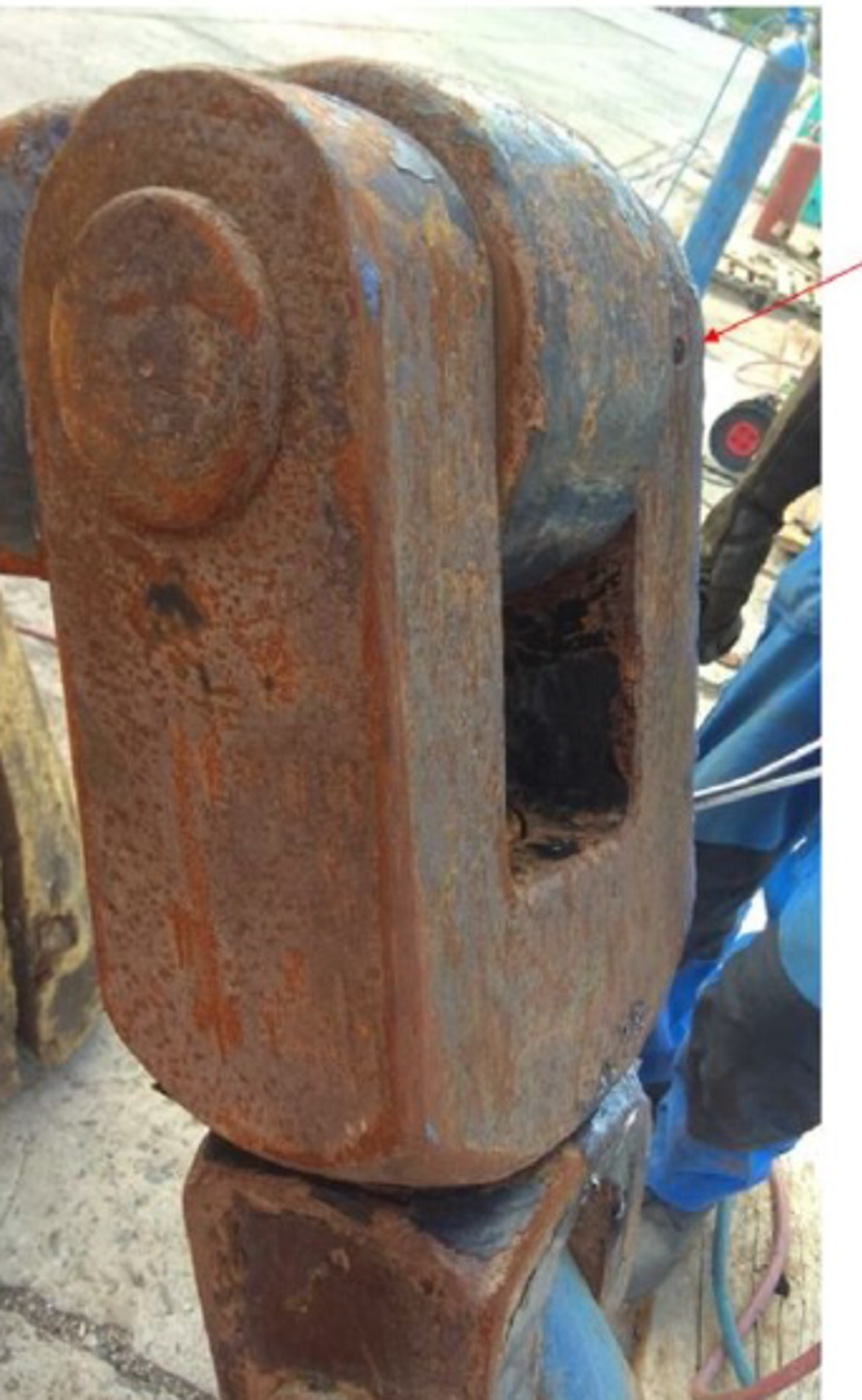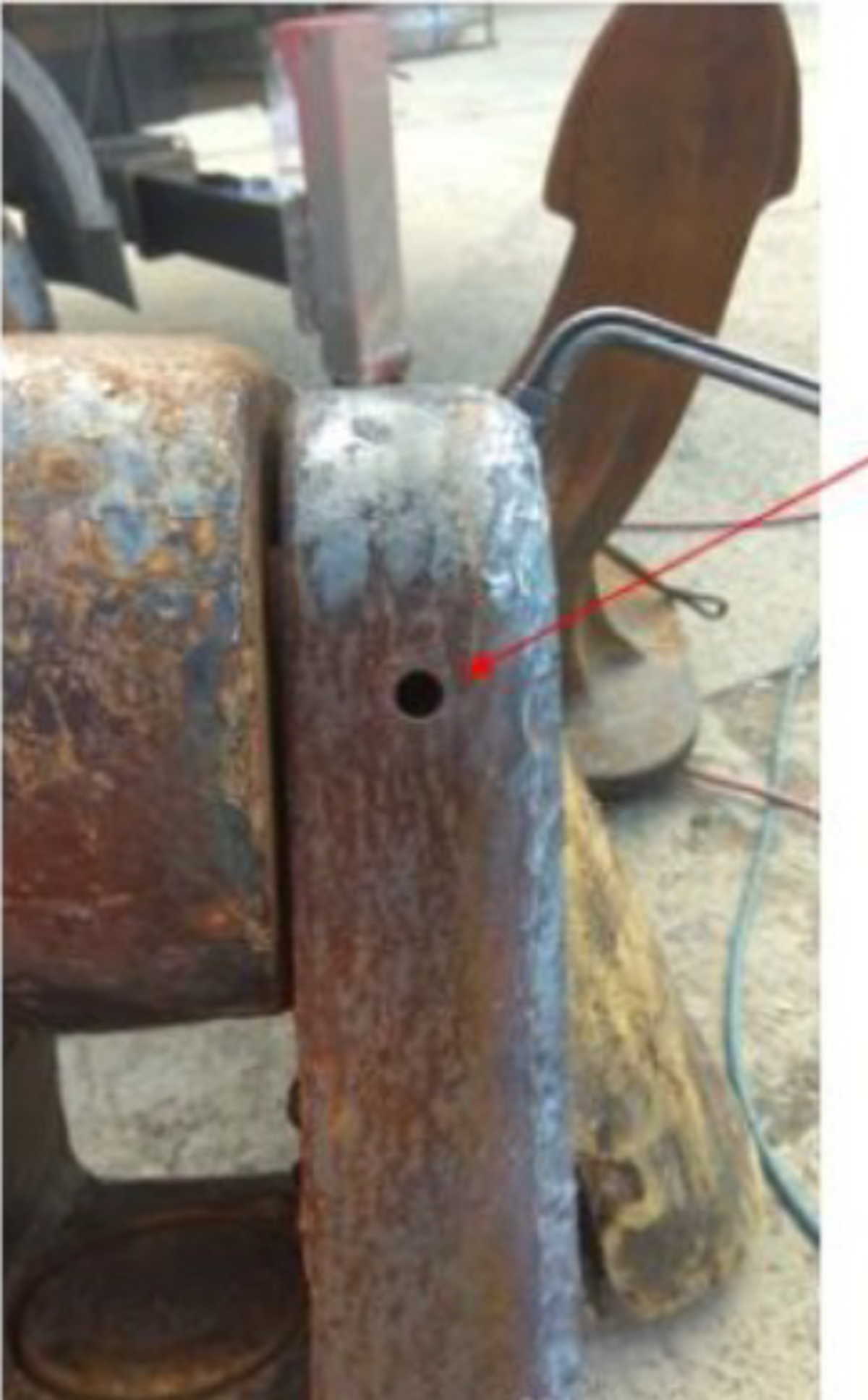Near miss: Absence of safety pin in the anchor swivel shackle
- Safety Flash
- Published on 17 September 2019
- Generated on 15 July 2025
- IMCA SF 22/19
- 1 minute read
Jump to:
During planned modernisation of the stern anchor, it was discovered that the safety pin in the anchor’s swivel shackle was absent.
What happened?
Positive action – Stop work authority – was exercised by the vessel crew.
There was a thorough visual inspection before work started, which allowed recognition that the anchoring equipment was in an unsafe condition.


What were the causes?
There was no regular planned maintenance scheduled for this piece of equipment.
The condition and availability of the anchor swivel safety pin was not part of the planned maintenance programme; thus, it had not been checked periodically.
What actions were taken? What lessons were learned?
- A new safety pin was ordered and installed in the shackle within 12 hours.
- Conduct immediate additional full inspection and check condition of anchor swivel’s shackle and availability of safety pin.
- Ensure that the planned maintenance system (PMS) requires regular planned maintenance of anchoring equipment, including a check that the safety pin is in place and in good condition.
Featured Safety Flashes
-
IMCA SF 16/16
27 June 2016
-
IMCA SF 02/15
5 February 2015
-
IMCA SF 01/13
18 January 2013
-
IMCA SF 11/17
22 May 2017
-
IMCA Safety Flashes summarise key safety matters and incidents, allowing lessons to be more easily learnt for the benefit of the entire offshore industry.
The effectiveness of the IMCA Safety Flash system depends on the industry sharing information and so avoiding repeat incidents. Incidents are classified according to IOGP's Life Saving Rules.
All information is anonymised or sanitised, as appropriate, and warnings for graphic content included where possible.
IMCA makes every effort to ensure both the accuracy and reliability of the information shared, but is not be liable for any guidance and/or recommendation and/or statement herein contained.
The information contained in this document does not fulfil or replace any individual's or Member's legal, regulatory or other duties or obligations in respect of their operations. Individuals and Members remain solely responsible for the safe, lawful and proper conduct of their operations.
Share your safety incidents with IMCA online. Sign-up to receive Safety Flashes straight to your email.